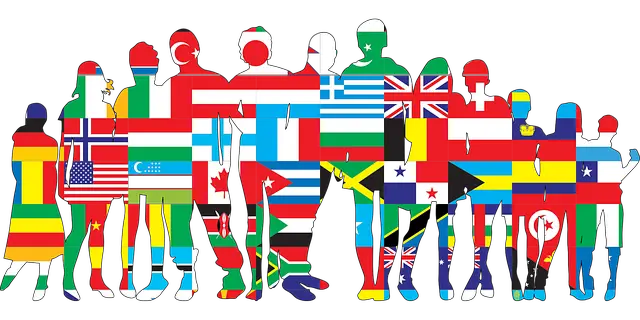Measuring how difficult a foreign language is to learn, is somewhat of an obsession for both its learners and teachers. It’s certain that almost every language on the planet claims to be the most difficult one for non-native speakers. While there are more frequent visitors on those Top X Hardest Languages lists, no doubt the claim can be (and is) made by virtually any language in existence today. People often insist on calling Arabic, Mandarin, Finnish, German, Hungarian, English, French, Japanese, etc the most difficult language on the planet – you name it, chances are it’s on a list somewhere.
If every language can make can the claim for being extremely hard to learn, that already shows you the criteria for assessing “difficulty” are somewhat trivial. But this isn’t the only reason why there isn’t such a thing as a hard language to learn.
Table of Contents
Different Does Not Equal Difficult
It would also be dishonest to claim that there is no objective distinction between how quickly you can potentially pick up two different languages. For example, let’s say Danish is your native tongue. In that case, you would already be more than halfway towards understanding both Swedish and Norwegian, while grasping Japanese or Russian would take more time. Since the Scandinavian languages are so closely related, you would simply so much familiar in Swedish, when Russian would force you to learn a whole new alphabet.
Note, however, that this says nothing about how difficult you would perceive your learning process to be. While differences between languages and language groups are often used as an objective measurement to determine “difficulty”, it only shows half of the picture.
What Do You Find Hard?
That is really the main question. Take Arabic, for example, which is often claimed to be incredibly difficult for English speakers. But, if you have an analytical mind, you might find the Semitic languages simple because most of their vocabulary stems from very short “root” syllables. Learning the roots would help you acquire a lot of vocabulary in a very short time. Similarly, if you have a great ear for music, tonal languages will not be such a challenge. So, thanks to your violin practice, Cantonese can be a breeze. But you wouldn’t know that just by looking at the lists.
So, you should definitely not get discouraged by anyone calling your target language difficult. Each learner is different and nobody can tell you what you will find hard or easy about your target language.
The More You Learn, The Easier It Becomes
When learning a particular language, it’s pretty common to come across a learning plateau. This happens when you’ve reached a particular, usually intermediate, level and feel like you’re not making progress as fast anymore. This can have a morale-killing effect, making a lot of people quit their learning process.
But, by that time, you will have already gained precious experience in the language learning process itself. Studies show that it becomes increasingly easier to pick up new languages after your second one. So, if you already speak four languages, you will find tackling Tagalog easier than the person just taking their first steps in second language learning. This is another aspect not often covered in difficulty rankings.
Difficulty Comes Down to Motivation and Approach
The most accurate estimation of how difficult you will perceive your target language to be will come down to your own passion and motivation for learning. Being passionate about learning your target language is the best way to guarantee success, independent of what that language is. An interested Englishman will find it easier to acquire Korean (rated as the very hardest for English-speakers by the Foreign Service Institute) than a bored Swede will Norwegian.
Of course, there are other factors at play – living in a country where your language is spoken will make it easier to acquire, falling in love with someone in that culture, or getting a job, all influence how quickly you can pick up a language. But all of these factors come down to personal context, motivation, and passion. It’s this that determines how hard you will find a language.
In any case, you can keep your motivation high and your learning process easy by adopting a learning approach you find effective and fun. Try different media, games, meeting people from a country where your target language is spoken, or organising a study group. Make learning work for you and every language will become as easy as the next.

